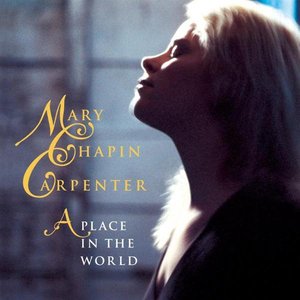Published on Jan 25, 2014
[Adapted from a review originally appearing in On The Town magazine on November 26, 1996]
It's hard to top perfection, especially when it's your own in the first place.
Some people spend their whole lives trying to do it, and wind up feeling like failures because they are never again able to match the brief shining moment in which they first completely fulfilled their potential. Let's hope this isn't the case with Mary Chapin Carpenter, a uniquely gifted country-folk artist who shone like a supernova on 1992's dynamic Come On Come On and 1994's intense Stones In The Road, but can't quite seem to match her previous wattage on 1996’s A Place In The World.
Oh, there are still some highlights here. "I Want To Be Your Girlfriend" is both earnest and forceful enough to make you smile, and "Let Me Into Your Heart" is a lilting, joyous Motown homage. "What If We Went To Italy" offers the kind of gentle, fully realized fantasy romance (and "I Can See It Now" the kind of regretful, brooding interior narrative of a breakup) that the perpetually longing Carpenter has mastered. And "Heroes In Your Own Hometown" is a solidly rocking little sociological fable drawn from the same vein as "Stones In The Road." Even so, though, the total effect of the album seems uncharacteristically less than the sum of its parts.
A major element of the problem here is pacing; Carpenter's previous albums have mixed tempos to great effect between somber, gorgeous ballads and rollicking good-time numbers. A Place In The World, on the other hand, is overloaded with mid-tempo numbers like "Keeping The Faith," "Naked To The Eye" and "That's Real" that just don't carry either the musical or the emotional weight of much of Carpenter's previous work. Then, when she reaches back with the closing title track for a haunting, introspective ballad a la "Come On Come On," she muddies it up with overdone strings and a lyric that borders on the trite.
The sharp edges of both anguish and joy that sparked so many of Carpenter's earlier songs seem dulled here, as if things are neither as good nor as bad for her as they used to be. That's a wonderful place for anyone to reach, with the possible exception of an artist whose greatest gift has always been her ability to write beautiful songs that are nonetheless full of formidably honest, even visceral emotion. The hard truth is, good times don’t necessarily make for good music. “
